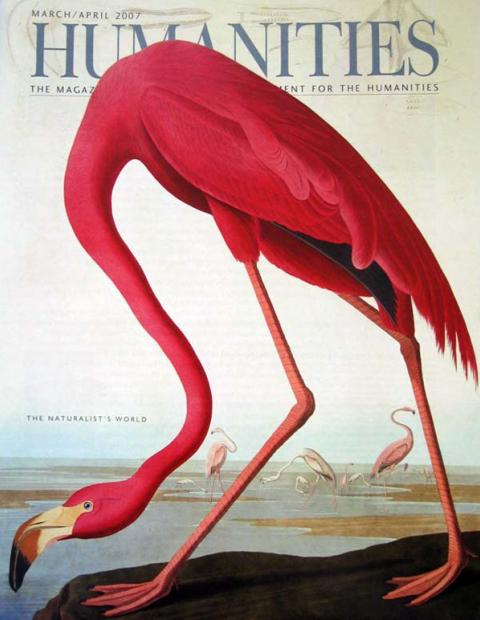"Try again"
Those two words, always delivered with a stern look over her glasses, were dreaded by any writer who worked for Mary Lou Beatty. It meant that you had fumbled your article. "Not bad," on the other hand, meant that you had nailed your piece. Those two mildly effusive words could brighten your whole day—even week—because you had succeeded in meeting her high standards.
Mary Lou was more than just an editor. She was a sage, a raconteur, a critic, a mentor, and a friend. She could straighten out the head of the most mixed-up writer, dishing out advice on sentence construction one minute, and work, life, and love the next. For the dozens of writers she coached over the years, she was simply the best editor they have known.
Mary Lou Beatty, the editor of Humanities magazine for seventeen years, passed away on February 7, 2007.
"Mary Lou served with distinction as NEH's director of publications," says NEH Chairman Bruce Cole. "Her friends and colleagues here at the Endowment will remember her tireless efforts to build the magazine into a publication of great distinction. And of course she will also be remembered for her wry wit, her sharp mind, and her keen powers of observation."
Mary Lou first came to the Endowment as a consultant to revamp a tabloid news-style publication into a national, glossy magazine. Over the years, she brought great writers and thinkers to its pages: playwright Arthur Miller, scholar Henry Louis Gates Jr., historian David McCullough, Supreme Court Justice William Rehnquist, Nobel laureates Czeslaw Milosz and Derek Walcott, novelist Walker Percy, and poet Gwendolyn Brooks among others. Under her leadership, the magazine won prizes year after year from national organizations, including the National Association of Government Communicators and the Association of Educational Publishers.
Before her tenure at NEH, Mary Lou rose through the ranks of the Washington Post to become one of the paper's first female high-ranking editors. She managed the National desk, ran Outlook, and started the Weekend section. She also developed a reputation for helping young writers jump-start their own careers. From the Post, she went on to cofound Washington Woman magazine in 1983, which was published for four years. A mix of business, fashion, and news, it was ahead of its time. "It was a grand adventure while it lasted, and it was well worth the effort," she said.
Mary Lou's leadership qualities were recognized by her peers. She served as president of the Washington Press Club and as director and vice president of the Washington Press Club Foundation, which raises money for oral histories and journalistic training of minorities. Her alma mater, Marquette University, bestowed its highest prize on her—the Byline Award.
She had a penchant for adventure—from cruising down the Nile, the Yangtze, and the Amazon to juggling a network of reporters during the riot outside the 1968 Democratic Convention. Along the way, she became a teacher—training students in media ethics and public affairs at American University and speaking to journalists and students during a tour of Brazil. Informally, she was a teacher to a wide circle of friends and colleagues.
Those who had the privilege of working with Mary Lou have been ingrained with the rules she lived by—"If you really love something you wrote, you probably need to cut it"—and the rules she would break if needed—"It reads better without the comma." She was a stickler for clarity, and for a lede that would make a reader want to read on. The simplest question she asked was always the hardest to answer: "So, why should I care?"
Mary Lou never settled for "just good enough." This was both maddening and rewarding for those who worked with her. It made Humanities a prize-winning magazine for the last dozen years. She instilled in us the confidence to try new things and challenge our skills.
She advised me once "to always hire the smartest people you can." I now understand that as a mark of a good manager, someone who is confident of her own abilities and who is not intimidated by another's intellectual prowess. Mary Lou reveled in the interests of her staff and her friends. She came to our dance concerts, encouraged our academic pursuits, admired our handmade jewelry, politely smiled at our children's pictures—in short, she treated her staff not as expendable worker bees, but as whole people to be nurtured, appreciated, and guided.
Mary Lou, we will miss you every day.

